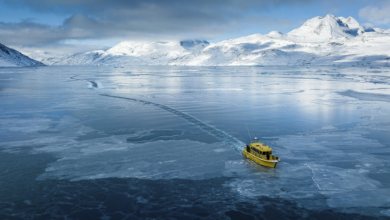The Indian Ocean and Climate Change

The Indian Ocean is anticipated to endure more severe consequences of climate change than other oceans due to its unique geographic position.
The vulnerability of the Indian Ocean and the eventuality of utilizing ocean resources, in particular rare earth, to lessen the effects of climate change and support sustainable development are discussed by Sunil Kumar Singh, the director of the National Institute of Oceanography( NIO).
Geographic Vulnerability
The Indian Ocean is especially vulnerable to the effects of a warming globe due to its location. The tropical Indian Ocean’s rising ocean surface temperatures have risen faster than the world average, indicating the region’s vulnerability to the consequences of climate change. Wide-ranging effects of global warming include a large impact on the Indian subcontinent, whose economy is closely related to agriculture and which depends heavily on the thunderstorm, which is controlled by the ocean
Resource Potential and Sustainability
According to Director Singh, the Indian Ocean plays a crucial role in addressing resource issues, particularly the need for vital metals required for renewable energy technology.
He emphasizes the need for sustainable mining of the ocean’s enormous reserves, particularly rare earth, which are necessary for battery technologies vital to energy storage and the switch to renewable energy.
Utilizing Ocean Resources
Director Singh discussed the enormous potential of the Indian Ocean as a supply of vital metals including cobalt, lithium, manganese, copper, and nickel. Both dissolved and solid components for cutting-edge technologies can be found in huge quantities in the water.
By responsibly using these resources in the Indian Ocean, the director emphasizes how crucial it is to lessen reliance on other nations.
Moving Towards Sustainable Development
Director Singh’s observations promote a change to sustainable resource exploitation methods by highlighting the ocean’s potential to assist renewable energy programs.
Nations can guarantee a sustainable and independent stance in the face of changing global problems by making the most of the enormous resources found in the Indian Ocean.
ALSO READ: Rosebank Oil Field Approval: Balancing Energy and Environment.
At the confluence of potential resource extraction and the effects of climate change is the Indian Ocean. Recognizing the disproportionate effects of climate change on this ocean and sustainably exploiting its resource potential might help nations’ economies as well as promote a greener and more sustainable future.
To lessen the effects of climate change and advance sustainable development, efforts in this area should concentrate on ethical resource management and collaborative research.



